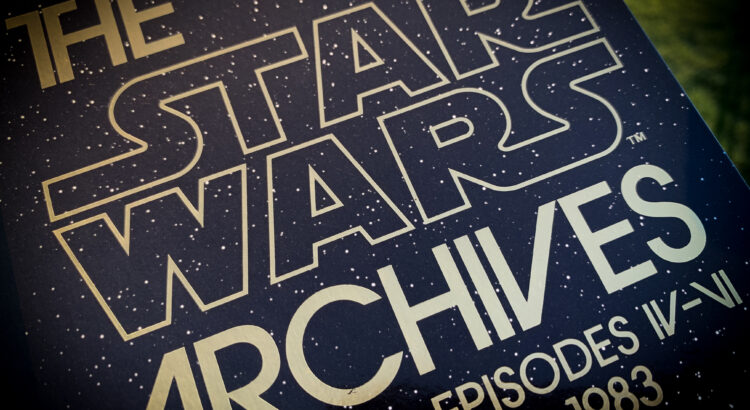I’m reading this book called The Star Wars Archives: Episodes IV – VI, 1977-1983. It’s by Paul Duncan.
It contains candid interviews with George Lucas, as he was making The Empire Strikes Back.
The thing I appreciate most about George Lucas is that he does not talk like a typical hype-y L.A. industry person, yet he is one of the most successful creators in history. (He eventually sold Star Wars to Disney for $4 BILLION.) His answers come off as straightforward and honest. As far as I can tell, he’s not putting on a show here. I can’t see how answers like these could benefit him or advance his career in any way. Then again, he said these things in… 1978? Maybe that’s how filmmakers talked back then.
On finding the story in post:
“There are directors like Alfred Hitchcock — they have a really great writer, they have storyboard people, they lay the whole thing out and they shoot exactly what they’ve laid out. Then, there’s directors like me, who are documentary filmmakers, who mix it up as they go along. I do a lot of writing in the editing room. I’m always rewriting the script. For three years, I do nothing but rewrite the script. I get a cut of the film, look at it and say, ‘Okay, what do I need? How is the story working? How can I mold it?’ So I worked a little bit more like a sculptor. You do it, you step back, you look at it, you change it, you go in and do it again. It’s not just laid out and I follow it. It’s not my nature. Everything is done that way.”
There’s something to be said for Bottom-Up vs. Top-Down Creativity. Bottom-up can lead to finding wild ideas bubbling up from your subconscious, rather than getting at storytelling from analysis and deduction. I won’t claim that is my dominant method, though. I’d say Bottom-Up is a more common trap to fall into, which leads to dead-end writing. AKA: “I have this great idea but I can’t figure out an ending.” The opposite extreme would be a well-structured story where nothing worthwhile happens.
On directing:
“I’ve never really liked directing. I became a director because I didn’t like directors telling me how to edit, and I became a writer because I had to write something in order to direct something. So I did everything out of necessity, but what I really like is editing. I had a very bad experience on Star Wars, because the crew was against me, and it was very, very difficult to get anything done. I hate the constant dealing with volatile personalities. Directing is emotional frustration, anger, and tremendously hard work — seven days a week, 12 to 15 hours a day. It’s like fighting a 15-round heavyweight bout with a new opponent every day. You go to work knowing just how you want a scene to be, but by the end of the day you’re usually depressed because you didn’t do a good enough job.”
I identify with this! First, because he wanted to work outside the system, and without interference. Second, because he ended up learning skills in order to achieve creative freedom. A typical Hollywood director (or anyone on the rung of the ladder) would never say any of that, probably out of fear they’d never get hired again.
On his ultimate dream:
“Most of this filmmaking effort is so I can create a dream, a dream I’ve had for a long time, which is to build a research retreat for film. The amount of money needed to develop a facility like that is so enormous that the money I have doesn’t amount to anything. You need millions and millions of dollars to build such an operation. The only way I can do it is to create a company that will generate profits. There’s a world of difference between the moneymaking abilities of corporations and those of individuals. For an individual to make two or three million dollars is a big deal. He’s feel very wealthy and secure. But most corporations have to make $30 or $40 million a year to feel secure. To take care of just the overhead of a company, to pay all the employees every year, costs several million dollars. I couldn’t direct enough films fast enough to pay for all those people. So I had to develop a company.”
What?! I wonder what ever happened to this idea of a research retreat for film. Is this what eventually became Skywalker Ranch? I’ve never thought of it in those terms. Maybe it is explained more later in the book.
Anyway, this book has so many revealing, behind-the-scenes stories. Rough journal entries during the creative process, transcriptions of story meetings. There’s a hilarious entry on the topic of Yoda, that says something like: “Maybe we should work with Jim Henson. I think he’s available.”
